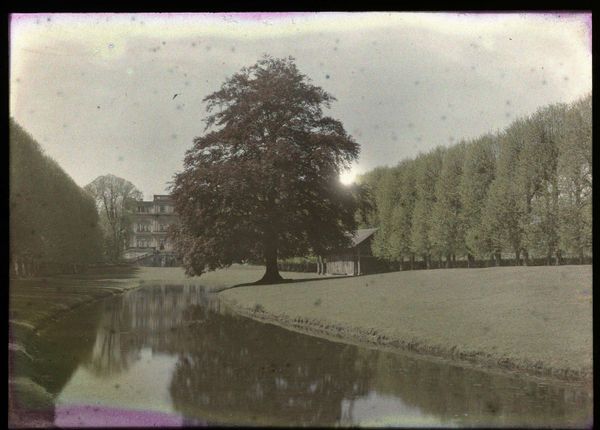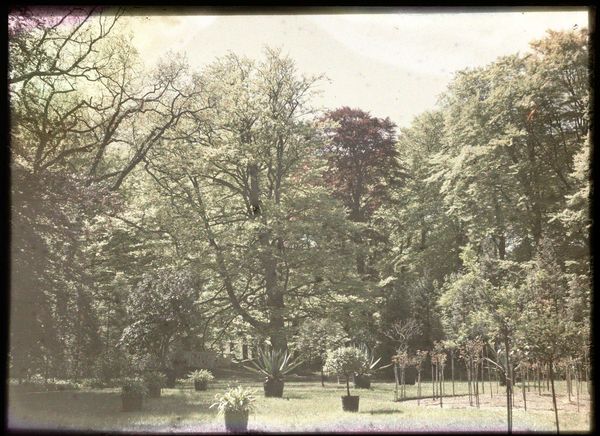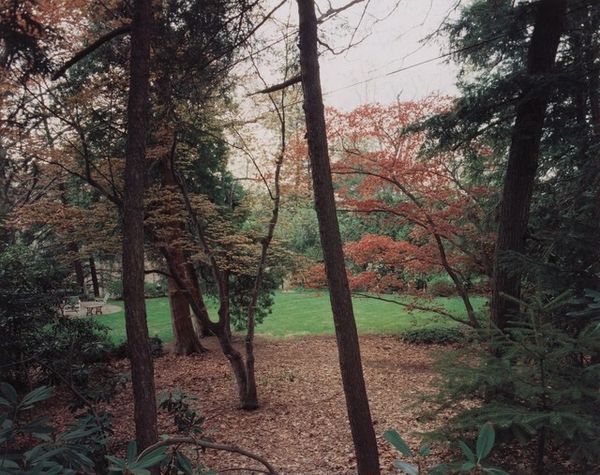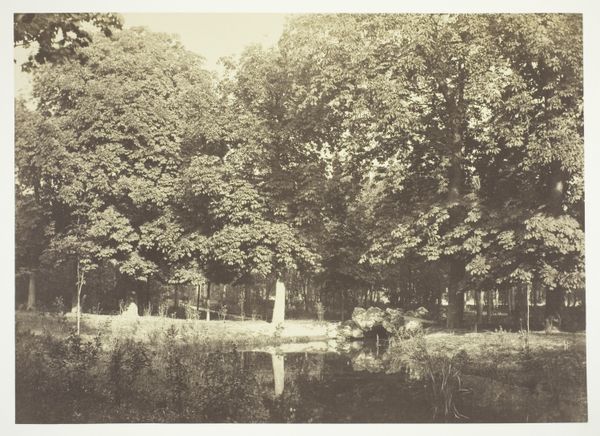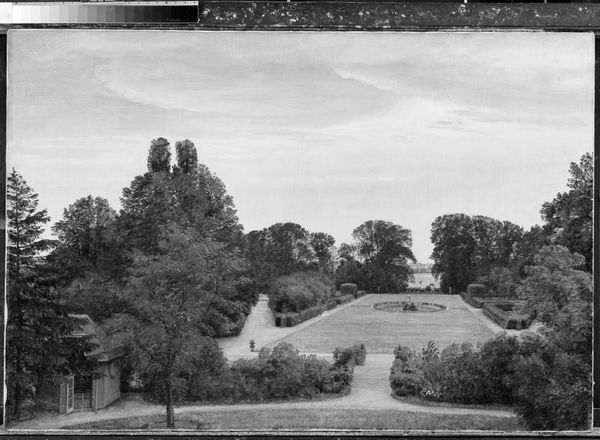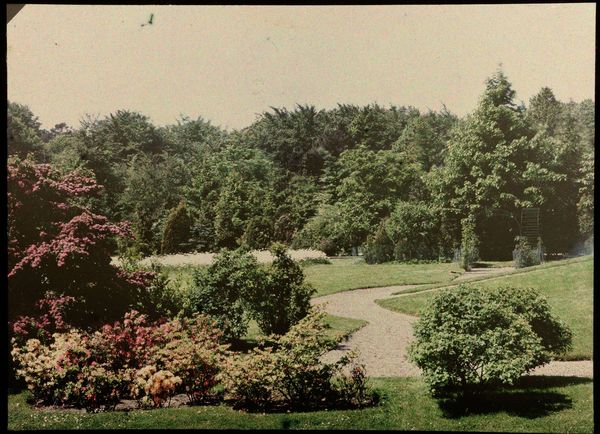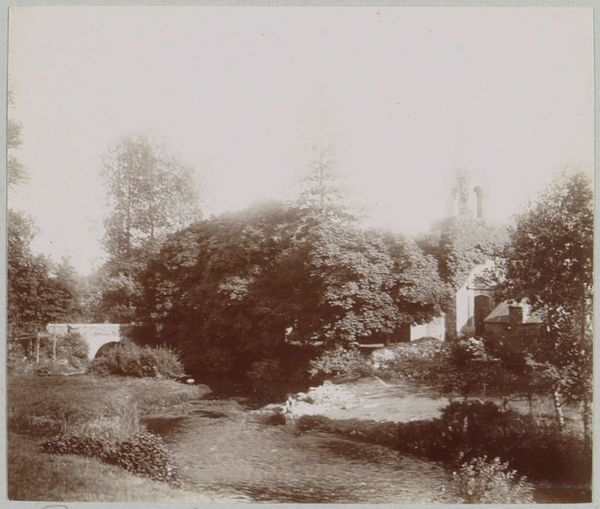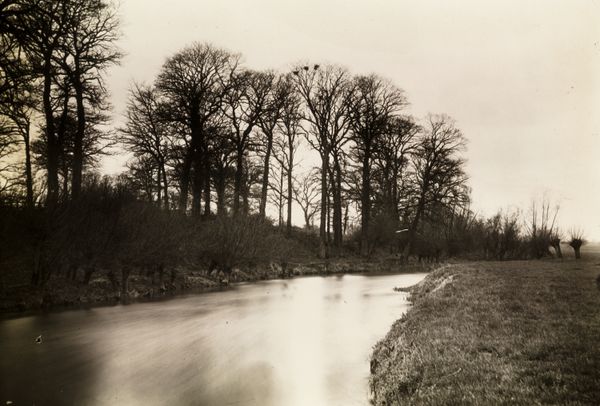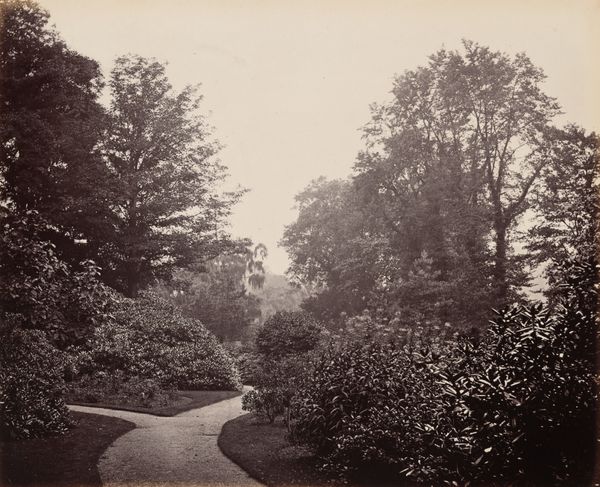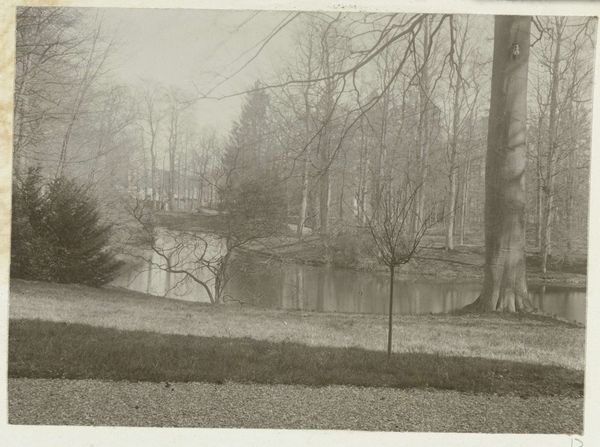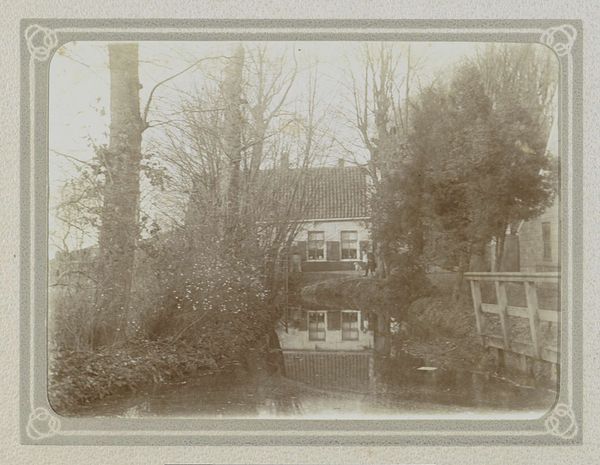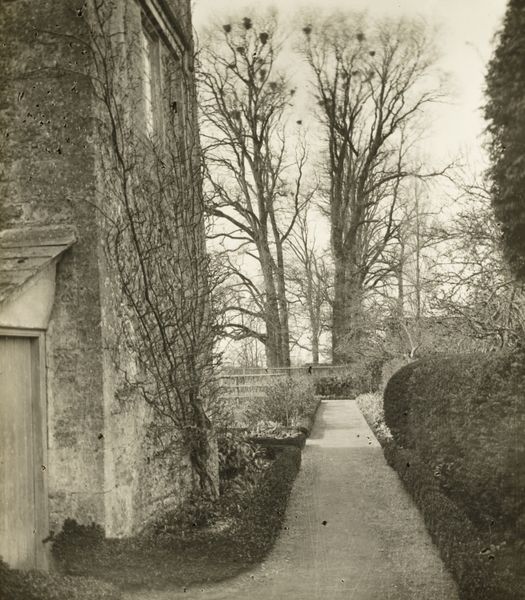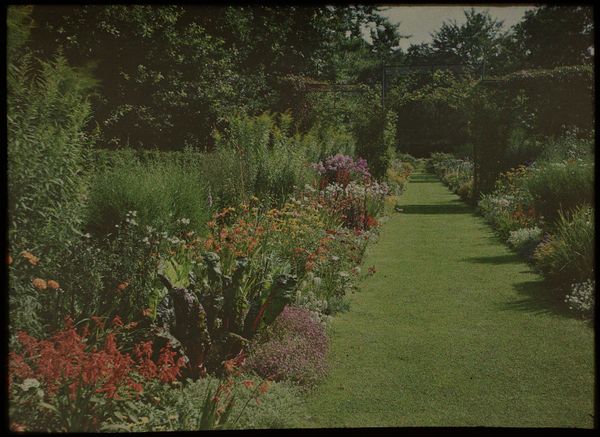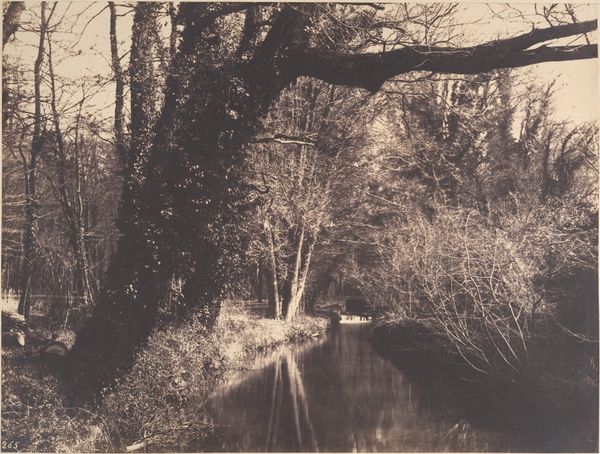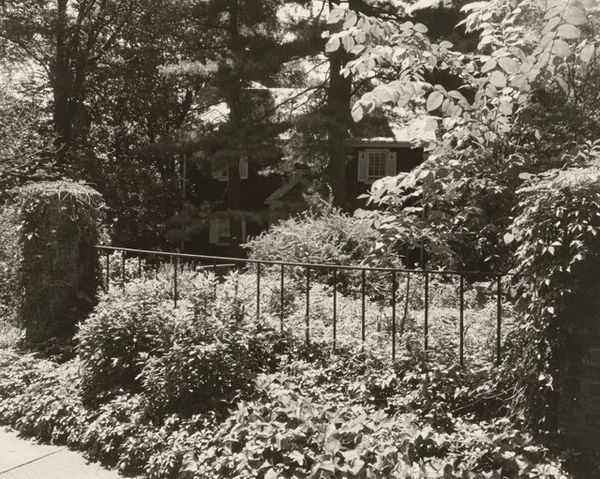
photography
#
tree
#
landscape
#
nature
#
photography
#
realism
Copyright: © Giuseppe Penone
Curator: Here we have Giuseppe Penone’s "L'ombra Del Bronzo," created in 2002. The work employs photography to capture a seemingly ordinary landscape scene. Editor: My immediate reaction is of stillness, even a bit of melancholy. The muted tones and bare trees evoke a sense of quietude, almost as if time is standing still within this park. Curator: It's interesting that you picked up on the stillness. Penone, especially in his later work, became fascinated with the inherent temporal quality of organic materials and how they exist in relation to the industrial materials we often overlook in art production. Think of bronze, often used for static sculptures, capturing the fleeting image of these deciduous trees in a transitional phase between seasons. Editor: The interplay between nature and artifice then takes on an interesting sociopolitical resonance. The landscape genre has often been leveraged as a means to legitimize specific relations between bodies and land. Curator: Indeed, particularly regarding historical approaches to property ownership and extraction, which Penone confronts by capturing the scene itself with photography. Think about what goes into producing even a photographic print like this. Editor: Considering these elements also makes me contemplate human absence from this landscape. Even the gate in the image is closed, suggesting denial of access, and underscoring the tension you noted regarding the landscape genre. Curator: Which, of course, circles us back to the “shadow of bronze”— the material traces we, as viewers, are often encouraged not to reflect upon within the constructed hierarchy of art viewing itself. Editor: Right, it begs questions about the material cost, the exploitative labor required to create this image, as well as its display. Curator: It seems that through what at first seems like a simple photograph, Penone pushes us to contemplate the intertwined realities of material culture. Editor: Absolutely, and also of the historical relationship between humans and our environment, specifically as those links manifest within social practice. The photograph, though seemingly passive, becomes an active inquiry into those tensions.
Comments
No comments
Be the first to comment and join the conversation on the ultimate creative platform.
